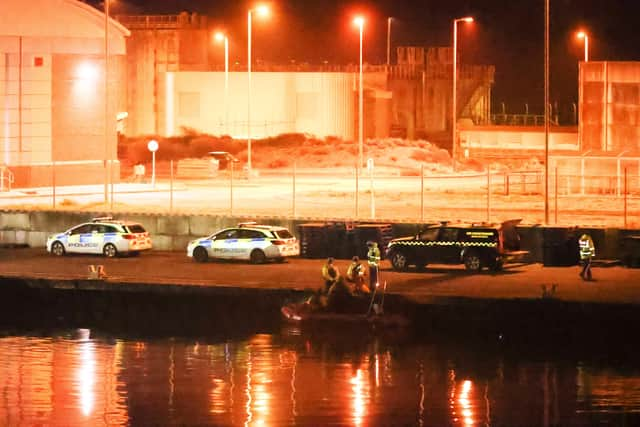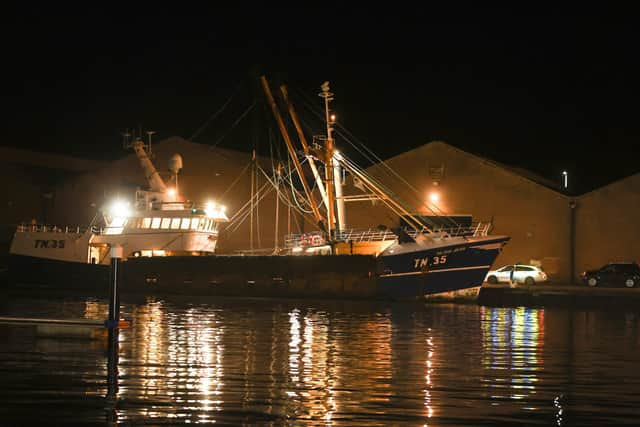Shoreham Port vows ‘zero tolerance approach’ after slaves rescued from fishing boat
and live on Freeview channel 276
Sussex Police, accompanied by HM Coastguard, responded to reports of concern for the welfare of crew members on a boat in the harbour late on Wednesday.
A police spokesman said officers rescued five men, aged between 23 and 44, and took them to a place of safety to receive support and advice.
Advertisement
Hide AdAdvertisement
Hide AdTwo men, aged 36 and 47, were arrested on suspicion of keeping persons in slavery and are currently in custody for interview and further enquiries.


According to police, none of the people involved came from Sussex.
Shoreham Port’s harbour master, Julian Seaman, said the port had a ‘zero tolerance approach’ to such matters and would always collaborate with Sussex Police and Border Force.
“The welfare of mariners is a priority for the port, as such we are an active member of the regional welfare committees and have a close working alliance with the Stella Maris, the largest ship-visiting network in the world,” he said.
“We thank everyone involved for their swift action.”


Advertisement
Hide AdAdvertisement
Hide AdLast month, Sussex Police ran a two-week public awareness campaign around modern slavery, warning the issue was more prevalent than people may be aware.
In 2019 there were 380 cases of potential victims of modern slavery being referred to the Home Office – 101 of which were generated by police activity.
Chief Inspector Kris Ottery, operational lead for modern slavery said: “Modern slavery is a serious crime that is often hidden in plain sight. Perpetrators exploit people from all backgrounds and will target an individual’s particular vulnerability.
“That vulnerability could be an individual’s desire to seek a better life for themselves and their families or they could be homeless living on the streets. There is no one stereotype to neatly define a victim of modern slavery.”
Working with the community, voluntary organisations and businesses was key to tackling the issue, he added.